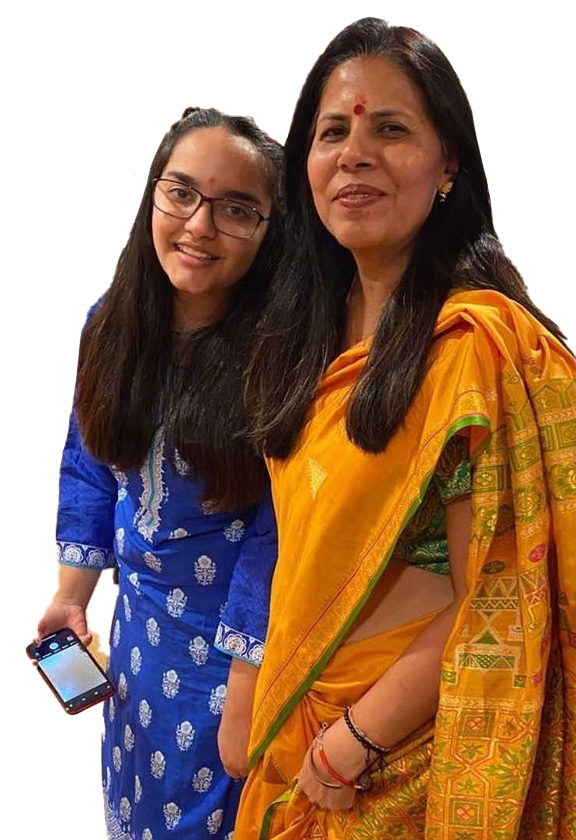By Nicolas Ngo, Staff Writer

As the fading brightness of the sun’s rays diminish from view, sophomore Divyansha Kumar meticulously places diyas, or Indian oil lights, carefully around her backyard, guaranteeing that none are blown out by the strengthening autumn breeze. Each flame gleams faintly, but collectively, the vibrant flare of orange and red engulf her terrace, casting flickering silhouettes of her celebrating family.
Kumar and her family partake in Diwali, a five day celebration observed by over a billion citizens globally. Diwali originates from the Sanskrit word Deepavali, or “rows of lighted lamps,” which are used to dispel darkness and shine light, symbolizing the triumph of good over evil. Hindus believe that Diwali rep-resents the day that Prince Rama and his wife Sita returned to Ayodhya after 14 years of exile and light diyas to celebrate their homecoming.
PHOTO COURTESY/ Divyansha Kumar
“My favorite part about Diwali is the lighting of the tea lights,” Kumar said. “It’s an all around warm and joyful feeling being there with my family and friends, but it also represents what Diwali is about: bringing light into places that were previously dark.”
The Kumar family mainly focuses on Nov. 14, when they participate in traditional customs such as buying and wearing new clothes, lighting off firecrackers, placing diyas around the yard and giving gifts and sweets.
“Diwali is a celebration, so it feels like Christmas,” Kumar said. “There’s family, food, gifts and prayers. We even wish people ‘Happy Diwali’ because, like Christmas, it’s something to be happy about.”
As Hindus, the religious significance is especially emphasized, as the Kumar’s take part in an hour long religious prayer and readings before eating dinner. Her mother prepares customary Indian dishes like chick-pea curry, potato curry, puri (fried flatbread), paneer (cottage cheese) and kheer (rice pudding) that still adhere to their vegetarian diet during Diwali week.
“For our family, it’s important to take part in Diwali because of our religious background as Hindus,” Kumar said. “It’s a tradition we’ve been doing forever; celebrating Diwali has been in our family for generations and something that my parents and their parents passed on.”
Though Diwali is typically an event shared by friends and relatives, the feasts and activities will only include her immediate family due to the spread of COVID-19. The Kumar’s are also taking precautions to limit their physical and social exposure by using their own private prayer room, allowing them to forgo a trip to the temple. Kumar hopes will continue to observe more prominent Indian holidays to stay in touch with her Hindu roots.
“Being Indian-American has made me feel less of a connection to my heritage,” Kumar said. “Celebrating Diwali and its customs, like eating traditional food and lighting diyas, brings me closer to my culture and identity as an Indian.”
